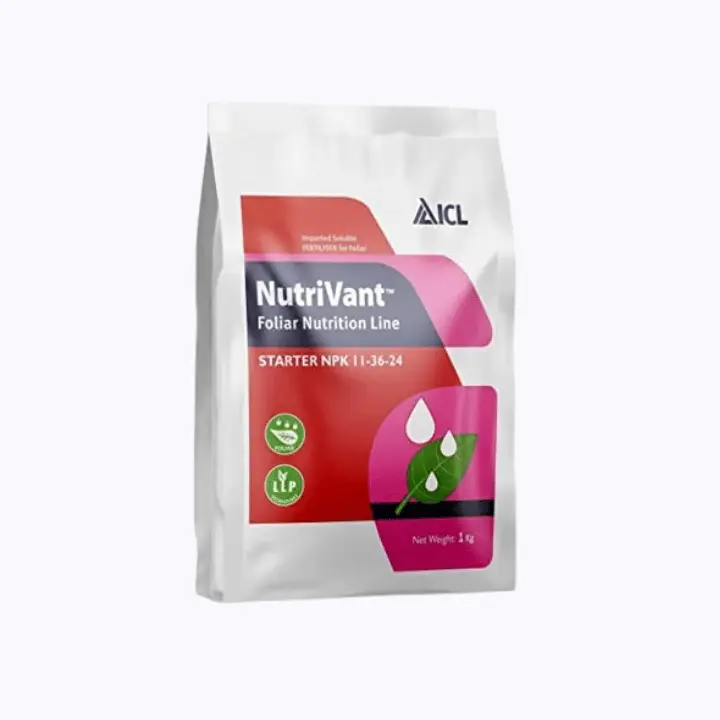
Boost your crop health and maximize yields with high-quality Micronutrients available at KisanShop. Micronutrients play a crucial role in plant growth, ensuring that crops receive essential minerals for optimal development. Our specially formulated micronutrient blends are designed to address nutrient deficiencies in the soil, promoting healthier and more productive plants.
Applying our Micronutrients to your crops offers several key advantages, improving both plant health and farm productivity:
Q. What are micronutrients, and why are they important for plants?
A. Micronutrients are essential minerals needed by plants in small amounts to support critical growth processes like photosynthesis, enzyme production, and root development.
Q. How do I know if my crops need micronutrients?
A. Common signs of micronutrient deficiencies include stunted growth, yellowing or pale leaves, reduced flowering, and poor fruit development. Soil testing is also recommended to detect specific deficiencies.
Q. Can micronutrients be used alongside fertilizers?
A. Yes, micronutrients can be applied in combination with macronutrient fertilizers like nitrogen, phosphorus, and potassium for comprehensive plant nutrition.
Q. What crops benefit most from micronutrient application?
A. All crops, including vegetables, fruits, cereals, and pulses, benefit from micronutrient application. Some crops, such as rice, wheat, and citrus fruits, may have higher demands for specific micronutrients like zinc and boron.
Q. How often should I apply micronutrients to my crops?
A. Application depends on the crop type, soil conditions, and nutrient deficiency levels. Micronutrients can be applied at various growth stages through soil or foliar application.
Q. Are micronutrients safe for organic farming?
A. Yes, many micronutrient products are organic-certified and safe for use in organic farming to maintain soil health and plant nutrition.